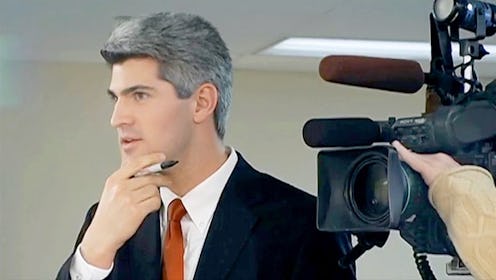
Reporter Aaron Keller, whose coverage of the Steven Avery case is featured in Making a Murderer, was one of the first journalists on the scene when Teresa Halbach disappeared in 2005. In an interview with Rolling Stone, the reporter comments on Steven Avery's trial with a fresh perspective and addressed theories about Halbach's murder that, he says, still bother him to this day. At the time of the highly public trial, Keller was reporting for Green Bay's NBC26, but after being assigned to cover the monumental case, everything changed.
For any viewer watching Making a Murderer, the dedication of Avery's lawyers Dean Strang and Jerome Buting is apparent. As a journalist sitting in on the hearings, Keller witnessed it firsthand. According to Rolling Stone, the defense attorneys' performance influenced his later decision to return to school and study law.
Since Netflix released the series, perspectives from individuals like as Jodi Stachowski or Jerome Buting, who were directly associated with Avery, have dominated the stream of new developments. Keller's third-person perspective, on the contrary, adds some objective insight. Keller is among other reporters, including Tom Kertscher, Diana Alvear, and Jenn Karlman, who covered the case a decade ago and have come out to comment on their experience.
In his interview, Keller makes two major claims about the case that were not covered in Making a Murderer. However, he does not reveal whether or not he believes Steven Avery is guilty. Instead, he suggests that he believes there are questions that should have been answered, but were never addressed.
Firstly, Keller talks about the possibility of Avery's fingerprints being on the exterior of Halbach's car:
One of the big questions has been whether Avery's fingerprints could have, in theory, survived on the Halbach vehicle — assuming that he had touched it — and I'm trying to remember whether there was a really bad thunderstorm within those first couple of days when she was reported missing, and when they were looking for her, because my memory seems to indicate that there might have been.
Rolling Stone did its research and discovered that, according to Weather Underground, a thunderstorm did indeed hit Manitowoc a couple of days after Halbach went missing.
Secondly, Keller created a curious dichotomy between NBC26, the station for which he worked, and its competing station, Green Bay's Channel 2, which he framed as a mouthpiece of the county:
Channel 2 in Green Bay was the legacy station that had primarily been number one through most of its existence, and to this day, they are pretty tight with the law-enforcement community. We [employees of the NBC affiliate] were mostly outsiders. They were insiders.
Keller's comments fall precisely in line with the conclusion of one of Making a Murderer's filmmakers. In an interview with Alec Baldwin, filmmaker Moira Demos said she would have voted "not guilty" if she were a juror in Avery's case. She expressed it had nothing to do with his innocence and rather, everything to do with the fact that questions remain unanswered.
She summed it up when she told Baldwin, "There's no verdict of innocent in this country."
Regardless of whether or not Avery is guilty, there are, according to Demos and Keller and most of Making a Murderer's viewers, major questions that remain unanswered.